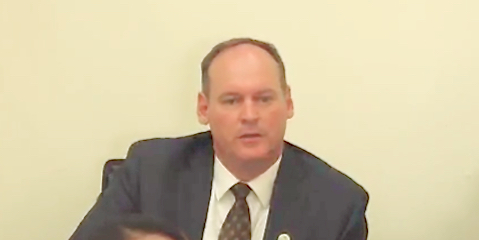
On Tuesday, the Public Services Commissioner denied a petition by the Waste Management Authority to have the fee it pays the commission reduced substantially. It also heard reports from the Water and Power Authority concerning water issues and automatic meters.
The fee the Waste Management must pay to the commission is based on gross operating revenues. The difference between what the PSC is billing and what WMA thinks it should pay comes from how “gross operating revenues” are defined.
In an email to the Source, Daryl Griffith, chief financial officer for Waste Management, after the meeting, wrote, “Gross operating revenue is the money generated from a business’s core activities.” And he adds, “In 2022, WMA had a total operating revenue of $1,379,213 and a total nonoperating revenue of $60,364,937.69.”
It is what Griffith is calling nonoperating revenue that is being disputed. WMA does generate a small amount of revenue from tipping fees, but the Virgin Islands government subsidizes most of its budget.
The petition says the funds coming from the government should not be considered as “gross operating revenue.”
Vice Chair of the Public Services Commission David Hughes, who motioned to deny the petition, asked representatives of the authority why those funds should not now be considered in the calculations since they have always been considered in the two decades of WMA’s existence. He asked, “Were all your predecessors wrong?”
All the commissioners present — Pedro Williams, Clement Magras, Hughes, Laura Nichols-Samms, and Raymond Williams – voted to deny the petition.
After the meeting, a press release from the PSC said the denial was because of WMA’s “failure to provide sufficient documentation” to support its case.
The authority can appeal the decision and take the PSC to court.
Also Tuesday, commissioners heard reports from WAPA’s Andrew Smith concerning efforts to remedy the discolored water service on St. Croix. He said WAPA had placed additional hydrants to allow more frequent flushing. When the territory has good rainfall, many residents use cistern water, allowing water to become stagnant in WAPA pipes. Smith also discussed WAPA’s plans to acquire FEMA funds to replace the territory’s water system.
Department of Energy fellow Solange Camacho reported on WAPA’s Advanced Metering Infrastructure Systems. She said real-time data and control over energy usage is essential for the territory.


